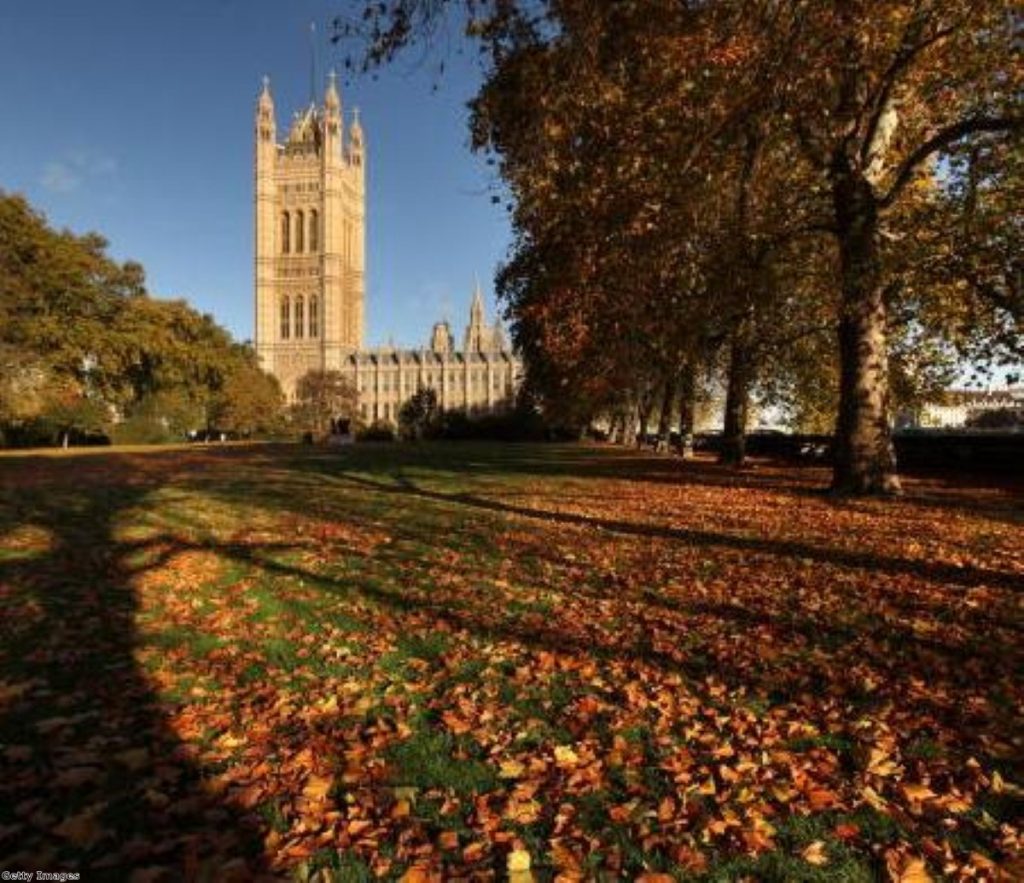Dead on arrival: No takers for party funding report
By Alex Stevenson Follow @alex__stevenson
All three parties are rejecting the proposals of a year-long inquiry into party funding, despite committing to remove 'big money' from politics in their party manifestos last year.
Sir Christopher Kelly's committee on standards in public life began examining options for political party finance after the coalition committed to pursue reform.
But its final report published today comes amid clear evidence of fundamental disagreement between the Conservatives, Labour and the Liberal Democrats, meaning deadlock has once again put a brake on reform.


Sir Christopher's committee recommends imposing a cap of £10,000 on donations for both individuals and trade unions, creating a shortfall which would be made up through £100 million of state-funded money spread over five years.
"The issue of party funding cannot be shelved until the next scandal brings it to the fore," Sir Christopher Kelly said.
"That commitment was repeated in the coalition agreement last year. Left to their own devices, the parties have so far been unable to find a way of doing it."
The Conservatives would lose three-quarters of their donations from a £10,000 cap. Oliver Heald, their MP on the committee, has issued a dissenting note arguing the case for a £50,000 cap.
Labour would lose out from proposals to remove its funding from trade unions being automatically allocated. Today's report proposes creating an opt-in for union members.
A dissenting note from Margaret Beckett raising "grave concerns" about the proposal was issued alongside the report.
She told politics.co.uk that the report would have a "sharp constitutional impact" on the unions and place a "great deal of administration" on them.
"At present, the trade unions who have a relationship with the Labour party is very strictly governed, not only by detailed regulation but by law," Ms Beckett said.
"The trade unions are not free to do what they choose with the money their members make available to them."
Mr Heald accused Labour of attempting to "have your cake and eat it" and made clear that without funding changes including the unions a deal would not be reached.
"We do need a recognition from Labour and the unions that trade union donations should be capped equally with other donations," he said in an interview for politics.co.uk's weekly podcast.
"If you're not going to get that, it's very difficult to see how we're going to make any progress."
The Liberal Democrats have the most to gain from the reforms as they would lose just 57% of their donations under a £10,000 cap – compared to 76% for the Tories and 91% for Labour.
Sir Christopher's report proposes allocating 3p of state funding to each vote. That would cost around £90 million over the course of a five-year parliament or around 50p per voter a year.
It would benefit the coalition's junior party, as it always receives fewer MPs per seats than either Labour or the Conservatives.
But deputy prime minister Nick Clegg told MPs last week that he was opposed to any state funding during this parliament.
"This is not the right time to ask our hard-pressed taxpayers to pay out more to political parties at a time when they're having to deal with so many cuts and savings elsewhere," he told the Commons.
Sir Christopher conceded after today's report launch that it was "difficult to imagine a more difficult climate in which to make such a proposal".
But he insisted there was no alternative, claiming that the public had to face up to the reality that additional state funding is needed if large donations are to become a thing of the past.
A public survey conducted for the inquiry at the end of 2010 found that 81% thought the most common reason for donations of over £100,000 was either the hope of receiving special favours in return or gaining access to those taking decisions.
"If it's too difficult to take big money out of politics because the public will never accept additional state funding even when the deficit is under proper control, of course we'll never get there," Sir Christopher added.
"But if you're serious about wanting to take big money out of politics, this is the only route we can see."
The committee proposes introducing the changes at the start of the next parliament, when the difficult financial climate may have eased.
A spokesperson for the deputy prime minister made clear the government could not see a case for more state funding "at a time when budgets are being squeezed and economic recovery remains the highest priority".
But the government did accept in principle the need for a cap on donations, arguing that its level would have to be considered "with reference to other elements of a reform package".
Mr Heald called for accounting changes which would make it easier to model what the effect of different levels of caps might be.
Sources inside the Conservative party have called for a "holy grail" of a cap somewhere between £10,000 and £50,000 where the impact on Labour and the Tories is broadly similar.
Sir Christopher urged all three parties to look beyond party political advantage by embracing the benefits of improved public confidence in the "integrity of the democratic system".
"We understand that implementation of our proposals will require considerable political courage," he said.
"The challenge is for the leaders of the political parties to work together to clean up party funding."









